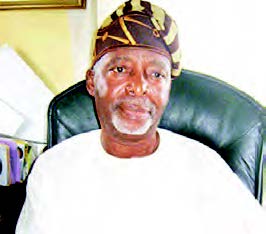Family of late OPC founder, Fasehun, protests Tinubu’s Democracy Day speech
The family of the late founder of the Oodua Peoples Congress (OPC), Dr Frederick Fasehun, has expressed discontent over President Bola Tinubu’s omission of their patriarch from the list of June 12 heroes in the presidential Democracy Day address. Dr Fasehun, a University of Aberdeen-trained medical doctor and Africa’s first acupuncturist, died on December 1, […]

The family of the late founder of the Oodua Peoples Congress (OPC), Dr Frederick Fasehun, has expressed discontent over President Bola Tinubu’s omission of their patriarch from the list of June 12 heroes in the presidential Democracy Day address.
Dr Fasehun, a University of Aberdeen-trained medical doctor and Africa’s first acupuncturist, died on December 1, 2018, in Lagos at the age of 83.
In a statement released in Lagos on Wednesday by Mr Remi Fasehun, son of the late OPC founder, the family described the omission as uncharitable, ungrateful and unpardonable, highlighting Dr Fasehun’s significant role as a foremost democracy activist.
The statement reads in part: “The president was a direct beneficiary of our father’s activism and sacrifice for democracy.
- #EndHunger protest erupts in Lagos, Abuja, Benin
- FG approves concurrent running of NCE, degree programmes in FCEs
“Both Tinubu and Fasehun were in the trenches together fighting for the restoration of democracy,” recounting instances when Dr Fasehun assisted Tinubu, including helping him escape into exile during General Sani Abacha’s regime.
The statement elaborated on Dr Fasehun’s imprisonment and the toll it took on his physical and psychological wellbeing, stressing the sacrifices made by his family and businesses for the struggle for democracy.
The statement reads further: “Fasehun’s hospitality business, Century Hotel, and his Besthope Hospital in Lagos are today a shadow of their former selves due to his commitment to the struggle for June 12.”
The family emphasised Dr. Fasehun’s founding of the socio-cultural OPC in 1994 as a crucial vehicle for restoring democratic governance from the military junta.
